Iraqi Kurdistan general election, 2017
|
|
|||||||||||||||||
|---|---|---|---|---|---|---|---|---|---|---|---|---|---|---|---|---|---|
|
|||||||||||||||||
|
Total of 111 seats of the Kurdistan National Assembly 56 seats needed for a majority |
|||||||||||||||||
|
|||||||||||||||||
|
|||||||||||||||||
TBD
General elections are scheduled to take place in Iraqi Kurdistan on 1 November 2017 to elect both the President and Parliament.
Following the end of the Gulf War in 1991, a civil war, mainly between the Erbil and Dohuk-based Kurdistan Democratic Party (KDP) and the Sulaymaniyah-based Patriotic Union of Kurdistan (PUK) led to the establishment of two separate Kurdish regional governments. Following the reconciliation and a power-sharing agreement between KDP and PUK, and Parliamentary elections in 2005, a unified Kurdistan Regional Government was created. The joint KDP–PUK faction Democratic Patriotic Alliance of Kurdistan assumed power and formed a government that was headed by Nechervan Barzani (KDP; 2006–09) and Barham Salih (PUK; 2009–12).
When former PUK official Nawshirwan Mustafa broke away to form the new Movement for Change (Gorran) party, the new party primarily hurt PUK's electoral support in the 2009 parliamentary elections. The KDP–PUK alliance, now renamed Kurdistan List, formed a new government headed by Nechervan Barzani.
...
Wikipedia



